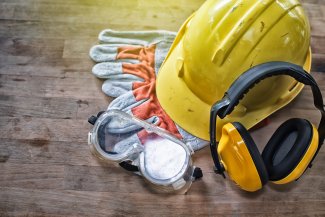Personal Protective Equipment

Price
Add to Cart
Personal Protective Equipment
Personal protective equipment (PPE) is clothing or equipment worn by workers to protect them from fire, toxic chemicals or physical impact. PPE should only be used when engineering designs and operating or maintenance practices do not provide a sufficiently safe work environment. PPE represents a last line of defense. It always preferable to design a facility so that hazards are not present, or, failing that, to ensure that workers cannot be exposed to the hazards.
The need for PPE can be determined with a risk analysis, often in the form of a Job Hazards Analysis (JHA). The analysis can be structured along the following lines.
- Can the hazard be removed? If so, there is no need for the PPE related to that hazard.
- Can the safety consequences of the hazard be reduced? If so, it may be possible to work with a lower level of PPE.
- Can the likelihood of occurrence be reduced? This may not change PPE requirements, but it will reduce the chance of someone being injured.
Only when the above analysis has been completed should consideration be given to the types of PPE to be used and when and where it should be worn.
Table of Contents
Introduction
Types of PPE
Regulations and Standards
Guidance Documents
OSHA 3151
HSE Personal Protective Equipment
Clothing
Flame Resistant Clothing
Impervious Clothing / Proximity Suits
Bunker Gear
Head Protection
Additional Equipment / Markers
Color Schemes
Maintenance and Storage
Hand Protection
Foot Protection
Eye / Face Protection
Respiratory Protection
Supplied Air Respirators
Air-Purifying Respirators
Self-Contained Breathing Apparatus (SCBAs)
Chemical Canister Rebreathers
Disposable Respirators
Fall Protection
Definitions
Fall Protection System
Fall Arrest System Equipment

